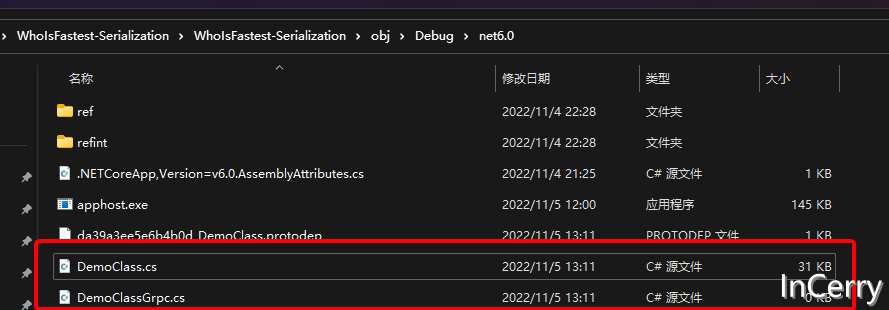EasyPoi大数据导入导出百万级实例
- 2022 年 11 月 7 日
- 筆記
EasyPoi介绍:
利用注解的方式简化了Excel、Word、PDF等格式的导入导出,而且是百万级数据的导入导出。EasyPoi官方网址:EasyPoi教程_V1.0 (mydoc.io)。下面我写了一个测试用例,真的是很方便,可以利用注解自动完成单元格的合并,设置单元格宽度、设置字符替换、并且可以很好的完成实体类之间一对一、一对多关系的处理
不卖关子,事先说明百万级大数据操作使用:导入(importExcelBySax),导出(exportBigExcel)
- 导入依赖
<dependency>
<groupId>cn.afterturn</groupId>
<artifactId>easypoi-base</artifactId>
<version>4.1.0</version>
</dependency>
<dependency>
<groupId>cn.afterturn</groupId>
<artifactId>easypoi-web</artifactId>
<version>4.1.0</version>
</dependency>
<dependency>
<groupId>cn.afterturn</groupId>
<artifactId>easypoi-annotation</artifactId>
<version>4.1.0</version>
</dependency>
- 实体对象
/** * 免打扰手机号 * * @author Mark [email protected] * @since 1.0.0 */ @Data public class NonIntrusiveExcel { @Excel(name = "手机号码", width = 20) @NotNull private String phone; @Override public boolean equals(Object o) { if (this == o) return true; if (o == null || getClass() != o.getClass()) return false; NonIntrusiveExcel that = (NonIntrusiveExcel) o; return phone.equals(that.phone); } @Override public int hashCode() { return Objects.hash(phone); } }
- 导入导出工具类
/** * excel工具类 * * excel中xls和xlsx的区别是: * 1、文件格式不同。xls是一个特有的二进制格式,其核心结构是复合文档类型的结构,而xlsx的核心结构是XML类型的结构,采用的是基于 XML 的压缩方式,使其占用的空间更小。xlsx 中最后一个 x 的意义就在于此。 * 2、版本不同。xls是excel2003及以前版本生成的文件格式,而xlsx是excel2007及以后版本生成的文件格式。 * 3、兼容性不同。xlsx格式是向下兼容的,可兼容xls格式。 * * @author Mark [email protected] */ public class ExcelUtils { /** * Excel导入 * * @param request request * @param pojoClass 对象Class */ public static List importExcel(HttpServletRequest request, Class<?> pojoClass) throws IOException { MultipartHttpServletRequest multipartRequest = (MultipartHttpServletRequest) request; MultipartFile file = multipartRequest.getFile("file"); if (file == null) { throw new RenException("未找到上传的文件!"); } ImportParams params = new ImportParams(); params.setHeadRows(1); params.setNeedVerify(true); // 开启校验规则 List targetList = null; try { System.out.println("正在读取文件: " + file.getOriginalFilename() + ",开始导入数据。"); targetList = ExcelImportUtil.importExcel(file.getInputStream(), pojoClass, params); } catch (Exception e) { e.printStackTrace(); } finally { file.getInputStream().close(); } return targetList; } /** * Excel大数据导入 * * @param request request * @param pojoClass 对象Class */ public static Set importBigExcel(HttpServletRequest request, Class<?> pojoClass) throws IOException { MultipartHttpServletRequest multipartRequest = (MultipartHttpServletRequest) request; MultipartFile file = multipartRequest.getFile("file"); if (file == null) { throw new RenException("未找到上传的文件!"); } ImportParams params = new ImportParams(); params.setHeadRows(1); params.setNeedVerify(true); // 开启校验规则 Set targetList = new HashSet(); // 添加set集合过滤去重元素 try { System.out.println("正在读取文件: " + file.getOriginalFilename() + ",开始导入数据。"); ExcelImportUtil.importExcelBySax(file.getInputStream(), pojoClass, params, new IReadHandler() { @Override public void handler(Object o) { targetList.add(o); } @Override public void doAfterAll() { } }); } catch (Exception e) { e.printStackTrace(); } finally { file.getInputStream().close(); } return targetList; } /** * Excel导出 * * @param response response * @param fileName 文件名 * @param list 数据List * @param pojoClass 对象Class */ public static void exportExcel(HttpServletResponse response, String fileName, Collection<?> list, Class<?> pojoClass) throws IOException { if (StringUtils.isBlank(fileName)) { //当前日期 fileName = DateUtil.formatDatetime(new Date()); } // 设置导出格式为xlsx,默认xlsx ExportParams exportParams = new ExportParams(); exportParams.setType(ExcelType.XSSF); Workbook workbook = ExcelExportUtil.exportExcel(exportParams, pojoClass, list); response.setCharacterEncoding("UTF-8"); response.setHeader("content-Type", "application/vnd.openxmlformats-officedocument.spreadsheetml.sheet,application/vnd.ms-excel"); // response.setHeader("content-Type", "application/vnd.ms-excel"); response.setHeader("Content-Disposition", "attachment;filename=" + URLEncoder.encode(fileName, "UTF-8") + ".xlsx"); ServletOutputStream out = response.getOutputStream(); workbook.write(out); out.flush(); } /** * Excel大数据导出 * * @param list 数据List * @param pojoClass 对象Class */ public static byte[] exportBigExcelByte(Collection<?> list, Class<?> pojoClass) throws IOException { Workbook workbook; // 设置导出单sheet页最大一百万行数据 ExportParams exportParams = new ExportParams(); exportParams.setMaxNum(1000000); exportParams.setType(ExcelType.XSSF); workbook = ExcelExportUtil.exportBigExcel(exportParams, pojoClass, (queryParams, num) -> { // 只导出一次,第二次返回null终止循环 if (((int) queryParams) == num) { return null; } System.out.println("正在进行大数据量导出,条数: " + list.size()); return Arrays.asList(list.toArray()); }, 2); ByteArrayOutputStream bos = new ByteArrayOutputStream(); workbook.write(bos); bos.close(); byte[] bytes = bos.toByteArray(); return bytes; } /** * Excel导出,先sourceList转换成List<targetClass>,再导出 * * @param response response * @param fileName 文件名 * @param sourceList 原数据List * @param targetClass 目标对象Class */ public static void exportExcelToTarget(HttpServletResponse response, String fileName, Collection<?> sourceList, Class<?> targetClass) throws Exception { List targetList = new ArrayList<>(sourceList.size()); for (Object source : sourceList) { Object target = targetClass.newInstance(); BeanUtils.copyProperties(source, target); targetList.add(target); } exportExcel(response, fileName, targetList, targetClass); } /** * Excel生成 * * @param response response * @param fileName 文件名 */ public static void mkdirExcel(HttpServletResponse response, String fileName, Workbook workbook) throws IOException { if (StringUtils.isBlank(fileName)) { //当前日期 fileName = DateUtil.formatDatetime(new Date()); } response.setCharacterEncoding("UTF-8"); response.setHeader("content-Type", "application/vnd.ms-excel"); response.setHeader("Content-Disposition", "attachment;filename=" + URLEncoder.encode(fileName, "UTF-8") + ".xls"); ServletOutputStream out = response.getOutputStream(); workbook.write(out); out.flush(); } /** * XSSF * excel添加下拉数据校验 * * @param workbook 哪个 sheet 页添加校验 * @param dataSource 数据源数组 * @param col 第几列校验(0开始) * @return */ public static void createXssfSelected(Workbook workbook, String[] dataSource, int col) { Sheet sheet = workbook.getSheetAt(0); CellRangeAddressList cellRangeAddressList = new CellRangeAddressList(1, 65535, col, col); DataValidationHelper helper = sheet.getDataValidationHelper(); DataValidationConstraint constraint = helper.createExplicitListConstraint(dataSource); DataValidation dataValidation = helper.createValidation(constraint, cellRangeAddressList); //处理Excel兼容性问题 if (dataValidation instanceof XSSFDataValidation) { dataValidation.setSuppressDropDownArrow(true); dataValidation.setShowErrorBox(true); } else { dataValidation.setSuppressDropDownArrow(false); } dataValidation.setEmptyCellAllowed(true); dataValidation.setShowPromptBox(true); dataValidation.createPromptBox("提示", "只能选择下拉框里面的数据"); sheet.addValidationData(dataValidation); } }
- 接口调用
@RestController
@RequestMapping("/app/nonIntrusive")
@Slf4j
public class NonIntrusiveController {
@Autowired
private NonIntrusiveService appNonIntrusiveService;
@PostMapping(value = "/importAndExportFilter")
@LogOperation("免打扰过滤")
@RequiresPermissions("app:nonIntrusive:filter")
public byte[] importFilter(HttpServletRequest request) throws Exception {
long startTime = System.currentTimeMillis();
// 读取excel文件内容转成集合
Set<NonIntrusiveExcel> importSet = ExcelUtils.importBigExcel(request, NonIntrusiveExcel.class);
log.info("已读取文件内容条数:{}, 总共耗时:{} 毫秒", importSet.size(), System.currentTimeMillis() - startTime);
startTime = System.currentTimeMillis();
// 读取数据表列表集合
Set<NonIntrusiveExcel> phoneSet = appNonIntrusiveService.listExcel();
log.info("已加载存储的免打扰号码库总条数:{}, 总共耗时:{} 毫秒", phoneSet.size(), System.currentTimeMillis() - startTime);
startTime = System.currentTimeMillis();
// Set排除已存在的集合数据
importSet.removeAll(phoneSet);
log.info("已完成过滤免打扰号码后的总条数:{}, 总共耗时:{} 毫秒", importSet.size(), System.currentTimeMillis() - startTime);
// 进行大数据excel导出
return ExcelUtils.exportBigExcelByte(importSet, NonIntrusiveExcel.class);
}
@GetMapping(value = "/exportTemplate")
public void export(HttpServletResponse response) throws Exception {
ExcelUtils.exportExcelToTarget(response, null, new ArrayList<>(), NonIntrusiveExcel.class);
}
}


